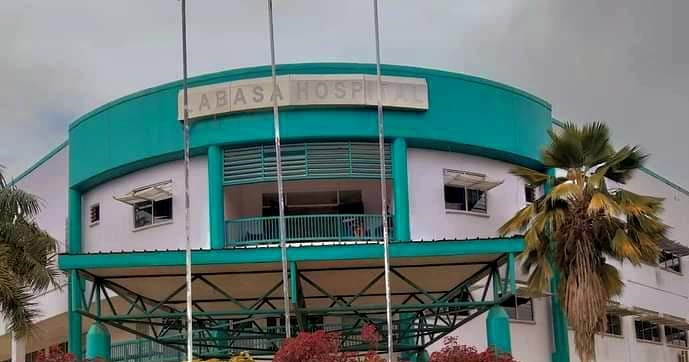PATIENTS as young as 18 are now being referred for mental health care to Labasa Hospital, highlighting the need for continued awareness and support in the Northern Division.
The hospital’s senior medical officer, Dr Moala Tuiketei, said young people, including those in their early 20s, were among those in need of help.
“Everyone has gone through a lot, trauma and everything, but eventually, we all need to stand up and support one another in terms of mental health awareness,” he said.
Dr Tuiketei said the hospital was currently managing a wide range of mental health conditions, including schizophrenia, anxiety disorders and depression.
“These are managed well with support from our colleagues at St Giles Hospital,” he said.
“We also stay in contact with them through phone consultations.”
St Giles Hospital, Fiji’s national psychiatric facility based in Suva, plays a key role in supporting mental health services in Labasa through regular outreach and professional guidance.
“Our mental health facility here in Labasa deals with a wide range of cases, but our main focus is to raise awareness about mental health,” Dr Tuikatei said.
“Everyone goes through phases of depression, anxiety or deep sadness. That’s why we’re here to offer help and care.”
He said counselling services were also being provided by two non-governmental organisations in the region.
Push for North psychiatrist
AS mental health issues surge nationwide, the Northern Division remains without a resident psychiatric specialist, according to divisional medical officer Dr Tiko Saumalua.
Dr Saumalua said mental health came under the umbrella of NCDs in the region.
“There are nurses trained in psychological first aid and we’ve got a group of them stationed across our centres,” he said Specialist psychiatrists are all based on Viti Levu, hundreds of kilometres and a ferry or plane ride away.
Dr Saumalua said a team from the St Giles Hospital in Suva does clinics in Labasa, but the schedule was irregular and their visits brief.
He said having a full-time psychiatrist based in the North would be a game-changer.
“It would be beneficial for people in the North if we had psychiatric specialists based here.”
Dr Saumalua said that even more alarming was the wall of silence that surrounded mental illness in the North and that stigma remained the most formidable barrier.



